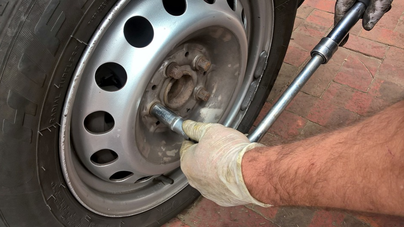Experience Accuracy with GMC Tire Service at Morris Tires
Experience Accuracy with GMC Tire Service at Morris Tires
Blog Article
Tire Service: The Effect of Weather Condition Conditions
When it concerns making sure optimal performance and security when driving, understanding the impact of weather on tire solution is important. From scorching warm to icy roadways, each climate element can substantially affect tire performance and general driving experience. By diving right into the effects of varying climate conditions on tires, drivers can gain important understandings that may enhance their car's efficiency and longevity. In this conversation, we will check out the detailed partnership between climate condition and tire solution, losing light on the significance of weather-specific tire maintenance practices and factors to consider.
Heat and Tire Performance
When revealed to high temperature levels, tires experience modifications in performance that can dramatically influence car safety and handling. The warmth created from long term driving or warm climate problems creates the tire rubber to soften, leading to decreased step life and boosted wear.

Cold Climate Results
Winter conditions can have a considerable effect on tire performance and safety and security. As temperatures drop, tire rubber can harden, causing reduced grip on icy or snow-covered roads. In winter, tires may also lose air pressure much more swiftly, which can impact handling and fuel efficiency. Furthermore, cool temperature levels can trigger tire sidewalls to tense, boosting the threat of damage from potholes or other roadway hazards.
To alleviate the results of winter on tires, it is crucial to routinely examine tire stress and inflate them to the supplier's recommended levels. Utilizing wintertime or all-season tires designed for winter conditions can also enhance traction and grip on icy or snowy roads. Appropriate tire maintenance, consisting of routine evaluations for wear and damage, comes to be even extra important during colder months to guarantee ideal performance and safety.
Rainy Conditions Effect
Tires with worn-out footsteps are much more susceptible to hydroplaning, where a layer of water builds up in between the road and the tire surface area, leading to loss of traction. To fight this, chauffeurs should consistently inspect their tires for ample tread deepness and consider spending in tires particularly made for damp conditions.
Furthermore, rainy climate can additionally lower exposure, making it testing for drivers to see the road ahead plainly (GMC Tire Service). In such problems, it is important to change driving speeds appropriately and maintain a safe adhering to distance to enable for abrupt stops. Correctly filled with air tires can also aid in preserving control on damp roadways by supplying far better handling and grasp
Snow and Tire Security
Snow-covered roadways pose distinct challenges for motorists, highlighting the significance of appropriate tire option and upkeep. When driving in snowy conditions, having the appropriate tires can make over here a substantial distinction in security and performance. Winter season tires are made with unique rubber compounds and step patterns to supply better traction on snow and ice contrasted to all-season tires. The much deeper footsteps and sipes of winter tires aid hold the road much better, lowering the danger of sliding and sliding.

Furthermore, chauffeurs should think about setting up tire chains in severe snowy conditions. Tire chains supply additional grip by clutching the snow and ice, boosting stability and control. It is crucial to adhere to producer instructions when setting up and making use of tire chains to stop damage to the tires and car (GMC Tire Service). By choosing the right tires, keeping proper inflation, and taking into consideration extra traction aids like tire chains, drivers can boost their security when browsing snow-covered roadways.
Weather-Related Tire Maintenance
When confronted with various climate condition, correct tire upkeep comes to be an important facet of vehicle security and efficiency. Weather-related tire upkeep incorporates a variety of methods intended at making sure optimal tire feature and durability in various weather condition circumstances. One crucial element of weather-related tire upkeep is tire pressure guideline. Rising and fall temperature levels can create tire pressure to differ, impacting grip and find here fuel efficiency. Consistently changing and inspecting tire pressure according to producer suggestions is important for secure driving in transforming weather condition conditions. In addition, tire tread depth plays a considerable duty in handling different weather condition aspects. Tires with ample tread depth offer much better grasp on damp or icy roadways, reducing the risk of hydroplaning or skidding. When walk wear reaches a specific deepness is vital for preserving traction and click site security in adverse climate, evaluating tire tread routinely and replacing tires. By focusing on weather-related tire maintenance, chauffeurs can boost safety, improve lorry efficiency, and lengthen the life expectancy of their tires.
Conclusion
In conclusion, weather condition problems have a substantial effect on tire performance and safety. From warmth impacting tire pressure and put on to cool weather condition decreasing traction, it is essential to think about the weather condition when preserving and utilizing tires.
In this discussion, we will certainly check out the elaborate partnership in between climate conditions and tire service, losing light on the importance of weather-specific tire maintenance methods and considerations.

Report this page